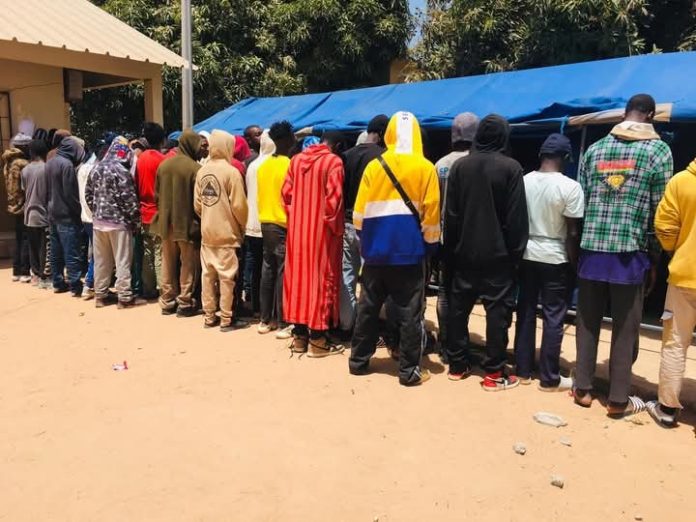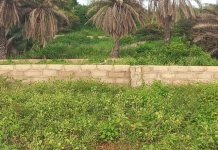Biran Gaye
With the scramble for greener pastures and escape from political upheaval gaining momentum in West Africa, irregular migrants are increasingly using The Gambia as a launchpad due to its strategic location at the mouth of the Atlantic Ocean and the non-existence of anti-smuggling laws.
In a press briefing in late March, Public Relations Officer of Gambia Immigration Department Inspector Siman Lowe reported the interception of a dozen potential migrants at New Yundum, with foreign nationals forming the majority.
“We have 34 Senegalese, 35 Guineans, 4 Gambians, and 2 Bissau Guineans,” Inspector Lowe said, with the migration attempt foiled following coordinated surveillance and intelligence-gathering efforts.
The individuals were detained and later underwent processing under Gambian immigration laws.
The agent who harboured the migrants in a residence remains at large as investigation is underway, he added.
Coastal villages like Tanji, Gunjur, and Barra have been identified as departure points for migrants who resort to the Atlantic route to reach Spain’s Canary Islands.
This follows another foil migration attempt involving over 200 migrants in recent months, showing the growing trend of departures in the West African country.
“These figures underscore the persistent need for continued vigilance, resource allocation, and collaborative efforts to effectively manage migration and combat migrant smuggling within The Gambia,” he said.
Calls for legislations
As The Gambia continues its fight against irregular migration, PRO Lowe lamented the absence of specific legislation criminalizing migrant smuggling, calling for a sweeping legal framework that enhances the resolution of smuggling-related cases, particularly prosecution.
“Underfunding in operational activities restricts the GID’s ability to conduct thorough investigations, maintain adequate surveillance of irregular migration activities along the coast, and enhance the technical capacities of officers to gather intelligence,” he highlighted.
Unlike neighbouring Senegal, the Gambia’s almost nonexistent laws against smuggling undermine the work of law enforcement agencies.
Efforts to introduce a new Immigration Bill, which includes provisions to criminalize migrant smuggling, have stalled, leaving law enforcement agencies with limited legal tools to prosecute individuals and dismantle smuggling networks involved in facilitating illegal migration through the Mediterranean and the Sahara Desert.
Despite growing concerns over the illegal migration route, several Gambians and other West African nationals continue to embark on the irregular journey, with many using The Gambia, Mauritania, and Senegal as a launchpad.




















